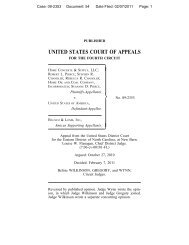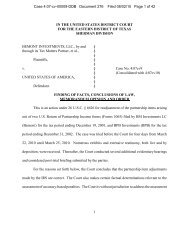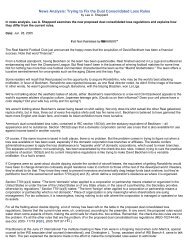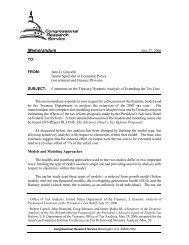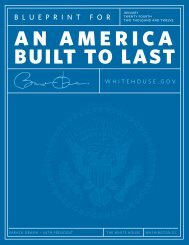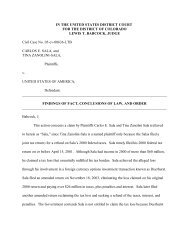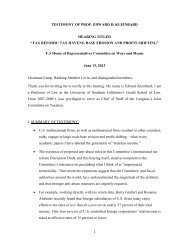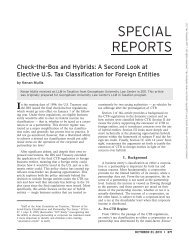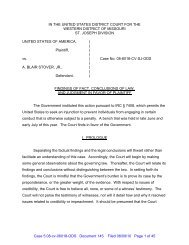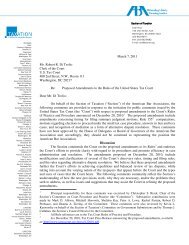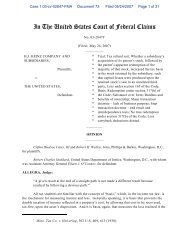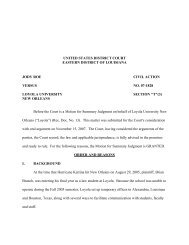United States' Motion to Exclude Expert Testimony of Plaintiffs'
United States' Motion to Exclude Expert Testimony of Plaintiffs'
United States' Motion to Exclude Expert Testimony of Plaintiffs'
- No tags were found...
Create successful ePaper yourself
Turn your PDF publications into a flip-book with our unique Google optimized e-Paper software.
c.v. is attached as Exhibit A. I am being compensated in this matter at my standard rate<strong>of</strong> $600 per hour.II. Summary <strong>of</strong> OpinionsThe taxpayers entered in<strong>to</strong> a transaction related <strong>to</strong> their potential acquisition <strong>of</strong>Solution 6, an Australian corporation (the transaction). Counsel has asked me <strong>to</strong>address issues relating <strong>to</strong> the penalties asserted against the taxpayers regarding thepositions taken on their returns with respect <strong>to</strong> the transaction. The <strong>United</strong> States hasasserted four penalties against the taxpayers: (1) the negligence penalty; (2) thesubstantial understatement penalty; (3) the substantial valuation misstatement penalty;and (4) the gross valuation misstatement penalty. Section II below describes thestructure <strong>of</strong> these penalties. In brief, all <strong>of</strong> these penalties, or the available defensesagainst the assertion <strong>of</strong> these penalties, include a requirement that the taxpayer actreasonably. The negligence penalty requires a reasonable attempt <strong>to</strong> comply with theprovisions <strong>of</strong> the Internal Revenue Code. In the circumstances <strong>of</strong> the transactions inthis case, the substantial understatement penalty is reduced <strong>to</strong> the extent the taxpayerhad a reasonable belief that the tax treatment is more likely than not the propertreatment (as well as had substantial authority). A taxpayer may assert a defenseagainst the gross valuation and substantial valuation misstatement penalties if he hadreasonable cause for the position taken on the returns (and <strong>to</strong>ok those positions in goodfaith).These reasonableness defenses are based on the objective behavior <strong>of</strong> thetaxpayer, and in all cases may be satisfied based on reasonable reliance on advice givenby a tax pr<strong>of</strong>essionaL. Whether such reliance is reasonable depends on the quality andnature <strong>of</strong> the advice as well as the facts surrounding the advice (such as whether thepr<strong>of</strong>essional had a conflict <strong>of</strong> interest, had all the relevant facts, and similar fac<strong>to</strong>rs).The taxpayers relied on a summary opinion from the accounting firm CosciaGreilch & Company LLP, dated December 31,2001, and a detailed backgroundmemorandum containing the reasoning behind the opinion, dated December 2001 alsoby Coscia Greilch (<strong>to</strong>gether, the Opinion). The Opinion analyzed the relevant taxissues involved in the transaction under review and concluded that the taxpayers weremore likely than not <strong>to</strong> prevail with respect <strong>to</strong> each item. It is my understanding that in2



